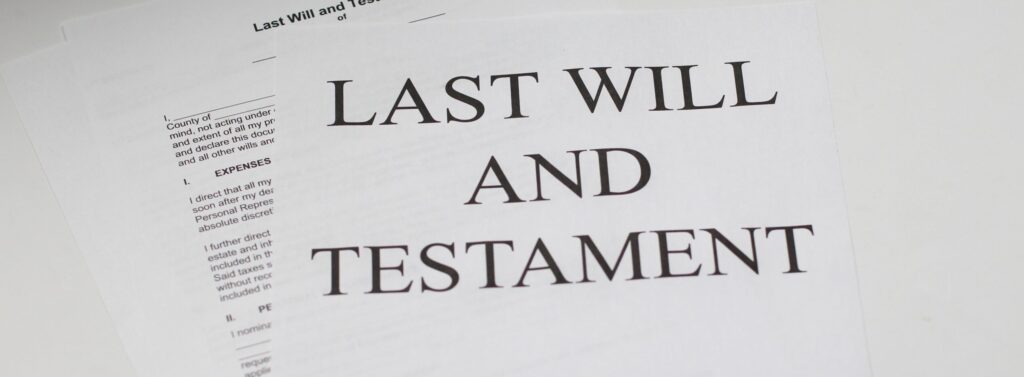Complicated family situations and second marriages can raise concerns over what may become of your assets after your death, for example if a spouse remarries after divorce or death. A life interest trust may be the solution to keeping everyone (relatively) happy.
A common dilemma
A common dilemma for many individuals is how to secure the future for both their spouse and children after their death. This is particularly the case for those with children from previous relationships who want to look after their new spouse or partner whilst also ensuring their assets are preserved for their children, or other loved ones.
These concerns are not exclusive to those in second marriages and are common amongst those who believe that a spouse or partner may remarry or form another relationship after their death or that they may depart from their agreement as to how the assets should be divided on the second death.
We have encountered many situations where a surviving spouse (often on a second marriage), having been bequeathed the deceased spouse’s entire estate, subsequently makes a new will excluding the deceased’s children altogether or remarries, upon which the old will is revoked.
A solution for modern families
A life interest trust is an arrangement which ensures that one or more beneficiaries can enjoy the use of trust property for a period of time (usually their lifetime). Taking an example of a house, the beneficiary (usually the spouse) can live in the property for their lifetime, or be given the entitlement to receive the rental income from it for their lifetime.
Rather than leaving assets outright to someone, the assets are left to trustees who will hold the assets in trust for the benefit of the lifetime beneficiary e.g. the spouse or partner. The trustees will then pass the asset in question to the children or other named beneficiaries on the death of the spouse.
Unlike the situation where the assets are left outright to the surviving spouse who can do what they want with the assets after your death, the assets are preserved for the next generation whilst at the same benefiting the surviving spouse.
This arrangement is very often put in place for those in second marriages who want to ensure that their spouse has a roof over their head but that ultimately the children will receive the benefit of the assets concerned after their spouse’s death. The arrangement is not exclusive to those in second marriages and is commonly used by couples who want to put arrangements in place now to protect their families in the future.
Asset protection
Another situation where they can be used is where someone does not want their assets to pass outright to a child (or someone else) for certain reasons, for example the child may be irresponsible with money or have financial or marital problems. If the assets were left to the child outright, the capital could be exposed to risk or depleted. A life interest trust can ensure that the child has the right to enjoy the benefit of the property for their lifetime (for example the right to live in a house) whilst ensuring the property is also preserved for the next generation, as the trustees will have ultimate control over it.
Provision can even be made for the life interest to cease on the happening of certain events such as bankruptcy thereby protecting not only the capital but also the income from the trust.
Flexible arrangements
Trust arrangements can be tailored to your own individual family circumstances and can be flexibly drafted so as to ensure that the trustees can adapt to changing circumstances. Life interest trusts can be created so they take effect during your lifetime or instead on your death. They can be drafted so as to allow your appointed trustees to pay or lend money to the beneficiaries during their lifetime should the need arise. They can also be drafted so as to bring the trust to an end in certain circumstances for example on the remarriage of the spouse or if the spouse no longer needs the property in question.
What assets can be put in trust?
Any type of assets can be put in trust but typically cash, investments or property are transferred to such trusts. Common examples are:
A house will be left to a beneficiary with a right to occupy the house during his/her lifetime. The trust can be drafted so as to give the trustees the right to sell the property and purchase a replacement property for the life tenant, so that the trust transfers to the new property.
Shares in a family company. You may be faced with the dilemma of wanting a family member to receive an income from the company but have concerns that they may not be able to run the company or fear they may sell it. Many people choose to leave their shares to trustees so that that their loved ones can enjoy the dividends from the shares but the shares and the accompanying voting rights and possible control of the company is left in the hands of trustees.
Farms are sometimes put in trust so that the surviving spouse or children have the immediate benefit from the farm but on their death it passes to the next generation.
Who should be the trustees?
It is important to choose your trustees wisely and whom you choose will depend on your own personal circumstances.
When settling their assets on trust many couples want to give the surviving spouse some say in how the trust is run and will appoint the surviving spouse as one of the trustees together with the children. This has the advantage of ensuring that the surviving spouse has some say but the disadvantage is that neither of the trustees can be said to be independent and their interests may collide. Sometimes there may even be a family dispute which may lead to a dead lock situation where the trustees cannot agree.
There is a lot to be said for choosing trustees who are independent of the beneficiaries. However that may not be practical for many people who would prefer to keep control within the family.
Taxation implications
There will be different tax implications depending on the type of asset being transferred to the trust and on the relationship between the person creating the trust and the beneficiaries and specialist advice should be sought.
If you would like to further advice on lifetime trusts please contact one of our specialist solicitors Claire Tuohy.








